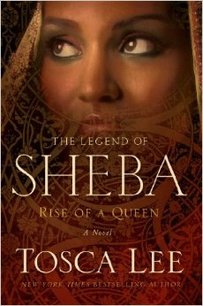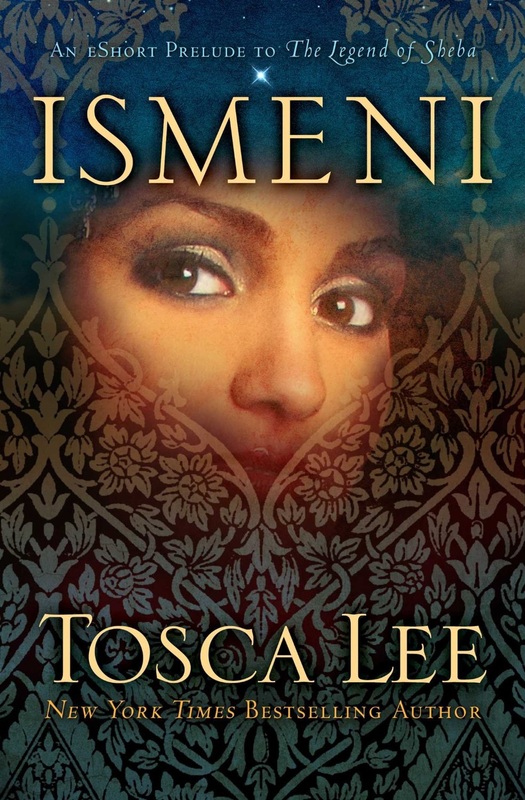|
Well, after a crazy busy summer, I'm back! I have something different for this post: a book review! I haven't written one of these since high school, but I love reading and am grateful for the opportunity that came for me to read an advanced copy and then write a review on Tosca Lee's newest novel, The Legend of Sheba: Rise of a Queen Tosca Lee is an award-winning, New York Times best-selling author of Iscariot, Demon: A Memoir and Havah: The Story of Eve, and the Books of Mortals series with Ted Dekker. To learn more about Tosca Lee, visit www.toscalee.com About Legend of Sheba: The Rise of a Queen: As the name suggests, this novel is about the Queen of Sheba. All I know about this queen is from the Biblical account found in 1 Kings 10:1-10 and 2 Chronicles 9:1-12, when she travels from Sheba to Jerusalem to visit King Solomon, whom God has given unmatched wisdom and wealth. But in the novel, there is much more to the story:
Q&A from Tosca Lee: What do we actually know about the Queen of Sheba? We know something about the Sabaean (the Israelite Sheba = ancient Arabian Saba) people: that they had a capital in Marib, a sovereign “federator” who united the kingdoms of Saba, an elegant and evolving script, a sophisticated dam near the capital that turned Marib’s dusty fields into oases, and that there is great evidence of Sabaean settlement in the area of Ethiopia near what would become Aksum. We know the Sabaeans of the 10th Century BC worshipped the moon god, Almaqah, though experts do not agree whether this was a male or female deity. We know that in terms of the ancient world, they were quite rich due in large part to their cultivation of frankincense in the southeastern region, and that they had an extensive and evolving trade network that extended as far north as Damascus, as far east as India, and as far west across the Red Sea as Ethiopia and the continent beyond. The queen is a very minor character in the scope of the biblical narrative, but you assert that her famous visit to King Solomon is vitally important in the scope of the Old Testament history. Why? For two reasons. If the story of the United Monarchy (the kingdom of David and his son/successor, Solomon) is not true, then the bedrock of three major world religions (Judaism, Christianity, and Islam) collapses into fiction, and the claim of Jews to the land of Israel with it. Perhaps the authors of 1 Kings and 2 Chronicles knew that, because they took the opportunity to basically say, “Hey, this queen from the ends of the earth, that famous Queen of Sheba, came and brought tribute to our king, and blessed him and our god and said ‘All that I heard was true, and I never even heard the half of it!’” This is fascinating. It begs the question: what was it that was so great about this female sovereign—in a time when the world was ruled by men—and a pagan, no less… what was it about her that was so outstanding that her endorsement of Solomon, his riches, wisdom, and god, held so much weight as to be included in the Old Testament narrative? Who was this woman who matched wits with the wisest man in the world—whose throne was so secure that she could leave it and make the 1400 mile journey of half a year to visit this king… before making the long trek back? Well, this must be a woman worth knowing something about. Bringing to Life: Like previous Biblical historical novels by Tosca Lee, The Legend of Sheba causes one to think, “What was it really like?” What did these people hear, see, taste, smell, feel and think? What did they themselves look like? Sound like? What made them laugh? What made them cry? So often we read the stories in the Bible and think of them as just that: stories. We can forget that these were real events, real places, real people, and a very real God of all. With her meticulous research and poetic writing, Tosca paints pictures of the Sabaean lands, Jerusalem, the riches of royalty, and the characters, from the perspective of the Queen of Sheba, bringing the story to life. Though being told from the viewpoint of the queen, who is pagan, there was still woven into the story events, thoughts and conversations, that showed the Lord as being God over other gods. There were contrasts made between the Lord God and false gods that I had never thought of before. Just so you are aware, there was sexual content in The Legend of Sheba: The queen is raped as a young girl. It does not go into detail, and this happening does play a part in shaping the character of the queen. The queen, being pagan, does have sex outside of marriage. Once again, this does not go into detail. There are also some innuendos, due to Solomon having many wives. I did not find the sexual content to be in excess or graphic. Overall, I enjoyed The Legend of Sheba: Rise of a Queen. I found this novel well-written, original, interesting and thought provoking, with strong characters and plot.
The reviewed title was given to me via Netgalley for me to read and write an honest review. All opinions stated are my own.
The post Book Review: The Legend of Sheba first appeared on The Overflowing Photos of book covers, interview Q&A, and synopsis of The Legend of Sheba: Rise of a Queen courtesy of Tosca Lee
1 Comment
|
|




